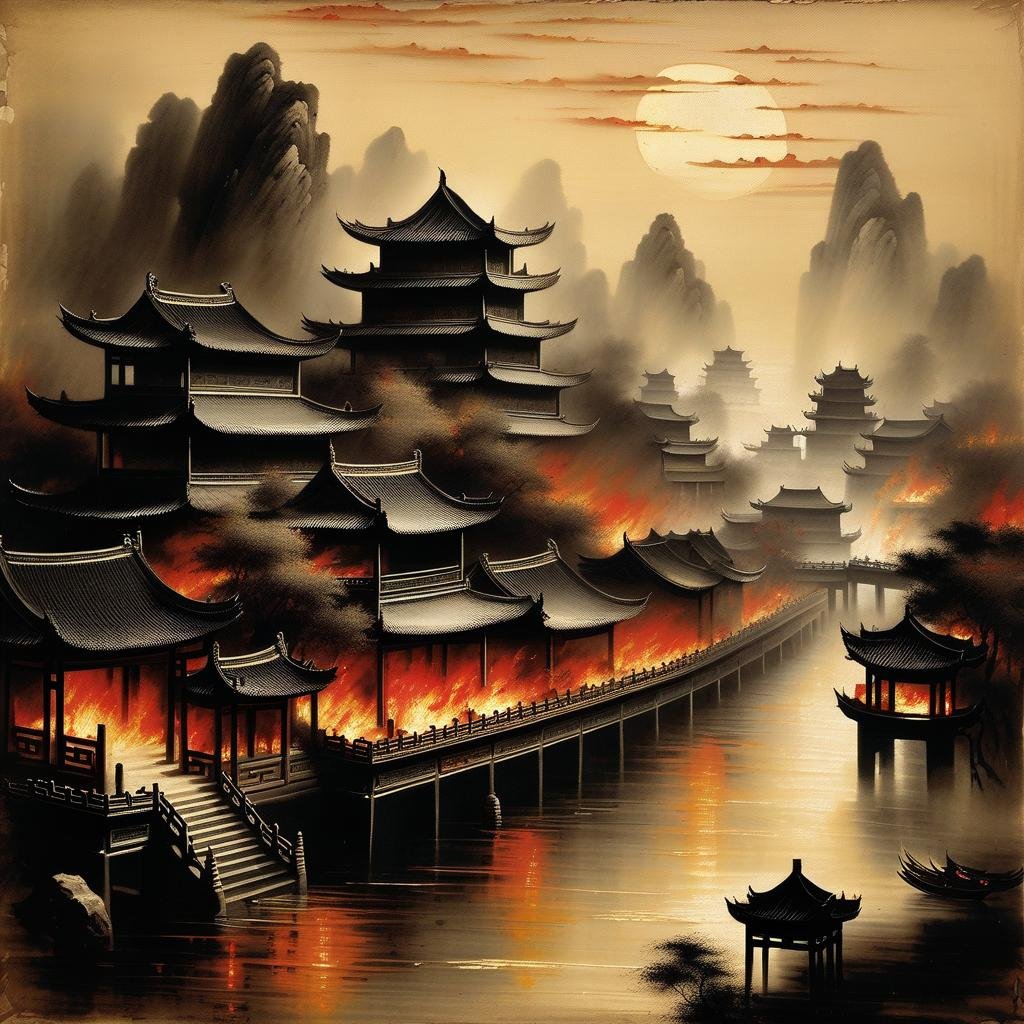MEDITATIONS: I CHING; THE BOOK OF CHANGES, CANTO TWELVE
Stop—Halting—Close
|OR| Obstruction
Look for opportunities to turn inward and listen to your intuition. Remember that situations mature in their own time. The laws of heaven will not be rushed or impeded. Also, look for opportunities to be alone as you work and study. (Bright-Fey 53)
Obstruction negates humanity. It is not beneficial for the rectitude of developed people. The great goes, the small comes.
Yin 1: Pull out the reed by the roots, and it takes others with it. Rectitude is auspicious and successful.
Yin 2: Embracing servility is auspicious for small people. Great people are successful in obstruction.
Yin 3: What is within is shameful.
Yang 4: If there is a command, there is no blame. Companions cleave to felicity.
Yang 5: Stopping obstruction, great people are fortunate, but still arrange security against loss.
Yang 6: Overthrowing obstruction; first there is obstruction, afterward joy. (Cleary 63-68)
The age of tranquility must come to an end. Earth must descend and heaven ascend: in so doing, the they blend for a time in creative communion and then separate, each driven in its natural direction. Thus comes obstruction symbolized by the hexagram of heaven over earth—the internal is weak, yielding, and receptive while the external rushes forward blindly and blunders. The masculine and feminine principles cease to relate to one another, each moving toward its own extreme until obstruction inevitably gives way to a new age of tranquility.
During a time of obstruction, virtues are punished by society and institutions while vices are rewarded. The cultivation of an upright, moral character will seem to others superfluous at best and as a handicap at worst. That is why it is best to turn inward during these times. One ought to yield the field of culture and politics, for participation in such infected institutions is likely to pull one out of balance like a reed plucked by its roots. Fellows carry each other in the same direction, and in this case that direction is downward toward greater and greater weakness.
In this situation, the majority of weak-willed and powerless people are best off keeping their heads down. They should focus on fulfilling their duties as best as they can and leave the responsibility to those above them. It is better if incompetent leaders take the blame for their poor leadership than those under them who are merely trying to get by.
However, there will be some who are strong of will and in positions of power. During a time of obstruction, these people can seize on the chaos like a ladder. Through rectitude, the strong can remain balanced and virtuous despite the degeneracy around them. This type of person can even succeed and begin to nudge the course of society toward tranquility.
These have been the first two Yins, representatives of patience and productive solitude. The third Yin represents an excess of internal yielding to the situation. While there will be a few great people who thrive in obstruction, there will also be those weak few who try to thrive without rectitude. These are the devious, crafty types who justify their immorality by citing the nature of the times. They have yielded everything to obstruction, including their morality. This is shameful, and it will only result in lengthening the society’s obstructed state.
The fourth Yang, shifting to the beginning of the external, is somewhat complex. “If there is a command, there is no blame” refers to the fifth Yang, the position of leadership. While acting from a servile position to redirect society back toward tranquility, one should ensure his actions seem to correspond with the desires of those above him. In this case, the virtuous man in a lesser position can act morally, help himself and society, and avoid inspiring the ire of his superiors. If one acts in a way that seems counter to his superiors, even if he is successful, he will be punished for his virtues—remember that this is a time of obstruction: doing so will cultivate friends and companions who will naturally gravitate toward the humble man of great utility and fortune despite the dire circumstances.
Those who do not need to hide their successes are the great people capable of fighting monsters without also becoming them. Their actions will reverse the flow of obstruction and produce tranquility, bit by bit. However, despite their success, these great people should not forget that obstruction can never be finally overcome. Though they make slowly transform obstruction back into tranquility, these strong men will have thereby produced the good times which will give rise to weak men. Therefore, they should at the same time be preparing for the collapse of their renewed norms and institutions. They will not last. The floods will one day return.
The final Yang represents obstruction at last overcome. Tranquility, abundance, and joy must follow. There is no excess—or at least, there is no going too far in the moment. The good times are upon everyone until, once again, weak men are fostered. Society can only hope that the great men of the previous age have left enough wisdom via tradition that the era of tranquility is long and the next obstruction short.
I Ching; The Book of Changes, with commentaries by Cheng Yi, translated by Thomas Cleary, Shambala Library, 2003.
I Ching: The Book of Changes; An authentic Taoist translation, translated by John Bright-Fey, Sweetwater Press, 2006.
